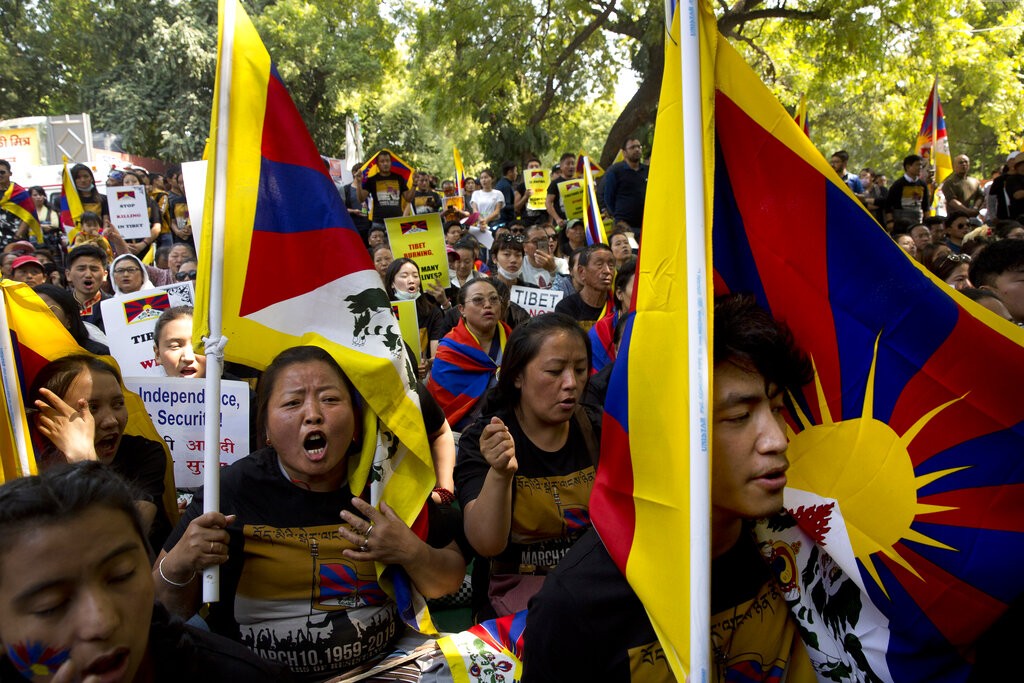As Tibetans remember Women's Uprising Day, China blocks foreigners from entering Tibet
由於西藏人記得婦女起義日,中國禁止外國人進入西藏

Beijing is reportedly denying foreigners access to Tibet over concerns of 'altitude sickness'
TAIPEI (Taiwan News) – As Tibetans this week remember the 1959 Tibetan rebellion that occurred 60 years ago, Chinese authorities have restricted foreign access to Tibet, reportedly out of concern for “altitude sickness” suffered by many foreigners.
In an attempt to reduce international attention to the anniversary of the uprising and Tibet’s Women’s Uprising Day, celebrated on March 12, Chinese authorities are temporarily denying foreign nationals entry to the region, having introduced a new series of regulations and permits for access.
When asked last week about the new regulations, a Chinese official in Tibet defended the policy, as reported by Reuters.
“After considering the special geographical and climatic conditions, we adopted a series of regulations on foreigners entering Tibet in accordance with the law. This is not only for Americans. Other foreigners also have to complete these procedures.”
March 12 in Tibet marks Women’s Uprising Day, in which thousands of Tibetan women took to the streets of Lhasa in 1959 in support of Tibetan Independence. Many of the participants in the uprising were later imprisoned or executed for their actions.
Women protestors in Lhasa, March 17, 1959 (Wikimedia Commons Photo)
The 1959 uprising occurred eight years after the Chinese Communist Party supplanted itself in Tibet and began administering the region via the manipulation of the Dalia Lama. Conflict and occasional violence had been brewing for years in the eastern region of Tibet before a mass protest rocked Lhasa on March 10, 1959.
Historical accounts state that thousands of Tibetans surrounded the palace in Lhasa that day, in order to protect the Dalai Lama from what was perceived to be plans for his abduction or assassination by the Communist Party. The mass public mobilization sparked weeks of unrest and violence that would ultimately force the Dalia Lama and many Tibetans to flee their homeland and become political refugees in India.
The Dalai Lama arrives at Tezpur, Assam in India April 18, 1959 (AP Photo)
In New Dehli, India, where a large community of Tibetans lives in exile, thousands took to the streets this week to remember the uprising against the communist Chinese forces which occurred sixty years ago.
Asia News reports that over 3,000 Tibet Independence activists took to the streets chanting slogans in support of Tibet and the Tibetan-Indian alliance. Some marchers shouted“Tibet’s freedom is India’s security” and “India-China friendship is a sham,” according to reports.
Another rally in support of freedom and human rights in Tibet, took place in Taipei, Taiwan on Sunday, March 10, where hundreds of Tibetans in exile and Taiwanese allies came to voice their support, some waving signs declaring “Tibetans want to go home.”
The leader of the exiled Tibetan government in Taiwan Dawa Tsering spoke in Taipei on Sunday, and called on “freedom-loving people of the world to commit to end oppression in Tibet and commit to fight against impunity” displayed by the Communist government in China.

